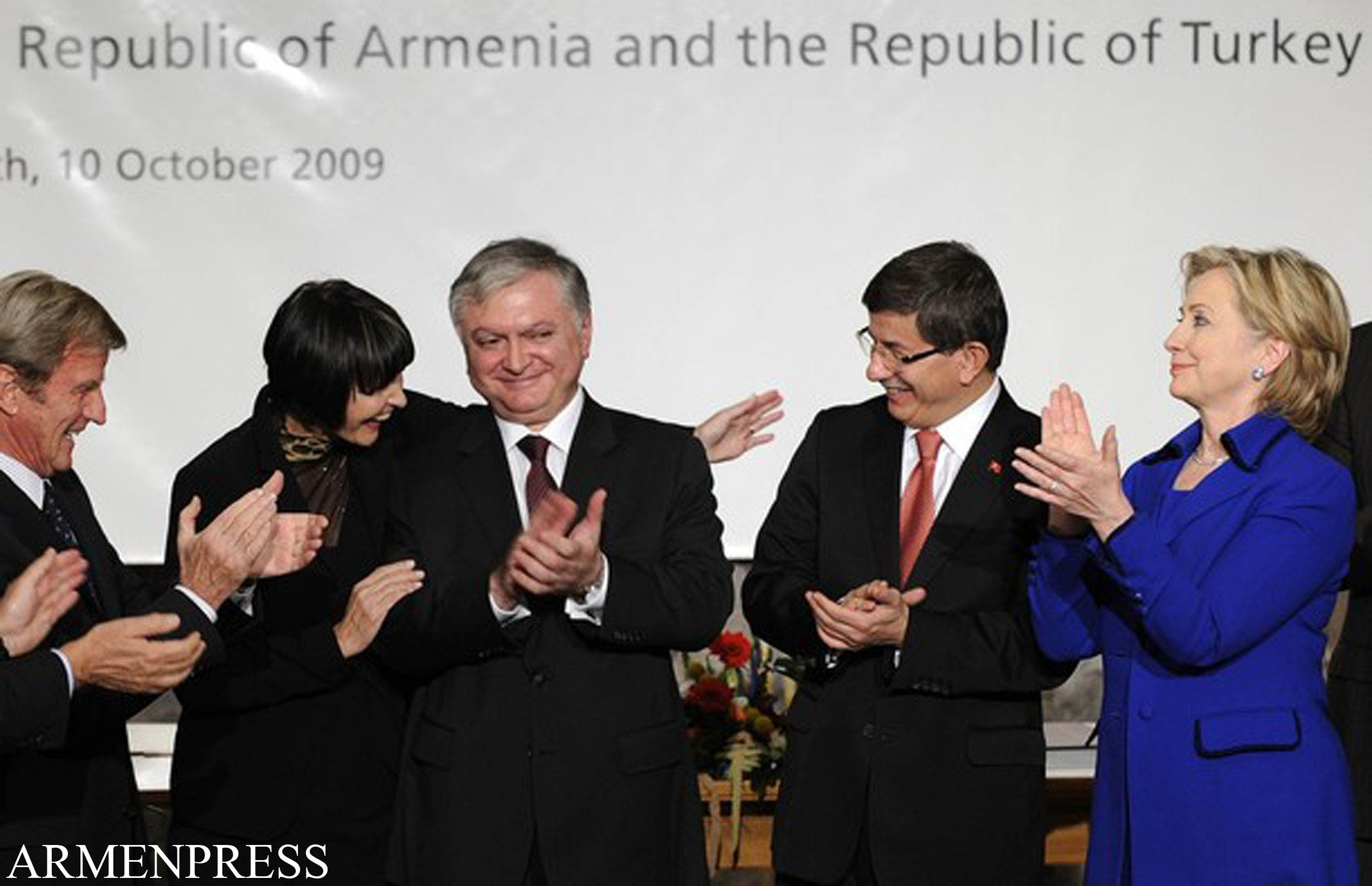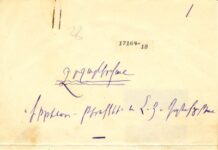
September 30, 2009
Dear President Sargsyan:
The Protocols for establishing diplomatic relations between Armenia and Turkey, although intended to help normalize relations between the two countries, raise serious questions about the process, and contain pitfalls, which I have set out below for your kind consideration.
My interest in the Protocols arises from being a scholar of genocide studies for most of my career, a founder of the International Association of Genocide Scholars, Chairman of the Academic Board of Directors of the Zoryan Institute, and a recipient of the Movses Khorenatsi Medal last year, awarded by you, Mr. President, for my “considerable contribution to the international recognition of the Armenian Genocide.”
I and other scholars, who have no personal, ethnic or political motive for affirming the Armenian Genocide, feel we must point out one significant aspect of the Protocols, the clauses that call for a dialogue on the historical dimension with the aim to restore mutual confidence between the two nations, including an impartial scientific examination of the historical records and archives to define existing problems and formulate recommendations and the establishment of an intergovernmental bilateral commission which shall comprise sub-commissions for the prompt implementation of the commitments mentioned in operations paragraph 2 above in this Protocol.
Does “the historical dimension” article refer to the Armenian Genocide, and does the “intergovernmental bilateral commission” article refer to a historical commission? If not, then how can Armenia hope to have normal relations with Turkey while ignoring a major cause of the tension between the two countries? If so, then they are a source of grave concern, because there is a broad scholarly consensus that genocide unquestionably occurred in the case of the Armenians.
You are well aware, Mr. President, that numerous distinguished historians, political scientists, sociologists, legal scholars, and authoritative institutions around the world have investigated the Genocide many times over, issued academic publications, and even made public declarations. These scholars have devoted their professional lives to conducting scientific research with the highest levels of academic integrity. As a result of their work, scholars have identified the Armenian Genocide as the archetypal case of modern genocide, whose pattern has many similarities with subsequent cases.
Therefore, any commission that purports now to conduct “an impartial scientific examination of the historical records and archives” in effect dismisses all of the extensive research that has already been conducted for decades and implies that none of it was impartial or scientific. This is offensive to all genocide scholars, but particularly non-Armenian scholars, who feel their work is now being truly politicized. I am sure you can appreciate that they have no confidence that a politically organized commission would not compromise historical truth, especially considering the imbalanced power relations between Armenia and Turkey. This assessment is particularly exacerbated when one considers the following:
- The national archives of France, Great Britain, and the United States, as well as Turkey and its wartime allies Germany and Austria, to name only a few, are full of incontestable documentation of the genocidal intent and nature of the annihilation of the Armenians.
- The historical records of the official investigation by a Turkish military Tribunal in post-war Turkey, recently published, based on authenticated, official Turkish documents, found irrefutable evidence of centrally organized mass murder against the bulk of the Ottoman Empire’s own Armenian citizens. The prosecutors were Turks, the judges were Turks, and most of the witnesses were Turks, including high ranking military officers.
- The International Center for Transitional Justice (ICTJ), reviewing the Armenian case for the Turkish-Armenian Reconciliation Commission (TARC), concluded that “the Events, viewed collectively, can thus be said to include all of the elements of the crime of genocide as defined in the Convention, and legal scholars as well as historians, politicians, journalists and other people would be justified in continuing to so describe them.”
- Prime Minister Erdogan has stated repeatedly that Turkey would never accept there was an Armenian Genocide, and even if a historical commission found that the Armenian case is genocide, it is argued, Turkey would just ignore the decision, as it did the report of the ICTJ, which led to the resignation of all the Turkish members of TARC.
But most importantly, Mr. President, the scholars are concerned that a historical commission would embolden those who would consider perpetrating genocide in future years by showing how easily genocide can be relativized, especially by the powerful.In 2001, the Zoryan Institute issued a rare public commentary about Turkish-Armenian relations, in which it stated: “Normally, dialogue is the first step towards the possible resolution of any conflict, and therefore reconciliation. The participants in a dialogue generally need to define the key issues which divide the parties and establish a process by which the dialogue will be conducted. There must be a sincere desire for mutual understanding and willingness to accept the factual issues in contention, even if emotionally highly charged….”
Turkey does not have the capacity to enter into a process of dialogue to define the key issue of the Genocide. Even if genocide were to be affirmed by “an impartial scientific examination of the historical records and archives,” Turkey would not be able to accept this, as it is currently bound by a strict penal code that makes it illegal for anyone from Turkey to even mention the Armenian Genocide. Therefore, was the negotiation of the protocols, so long in the making, done all this time in bad faith? If not, then perhaps what is required is a modification of the wording in the Protocol referring to the “historical dimension,” or a modification of the Turkish penal code, which currently criminalizes discussion of this subject, to make the Protocols viable.
If such modifications are not possible due to diplomatic pressures at this time, then perhaps it would be prudent to stage the process so that discussion of the “historical dimension” is deferred. This would allow the people of both countries, but especially Turkey, the opportunity to demonstrate “a sincere desire for mutual understanding and willingness to accept the factual issues in contention, even if emotionally highly charged.” In the meantime, Turkey and Armenia could proceed with the establishment of a diplomatic exchange, which, in itself, would be a major step towards reconciliation.
Yours respectfully,
Roger W. Smith,
International Association of Genocide Scholars
Chair, Academic Board of Directors













